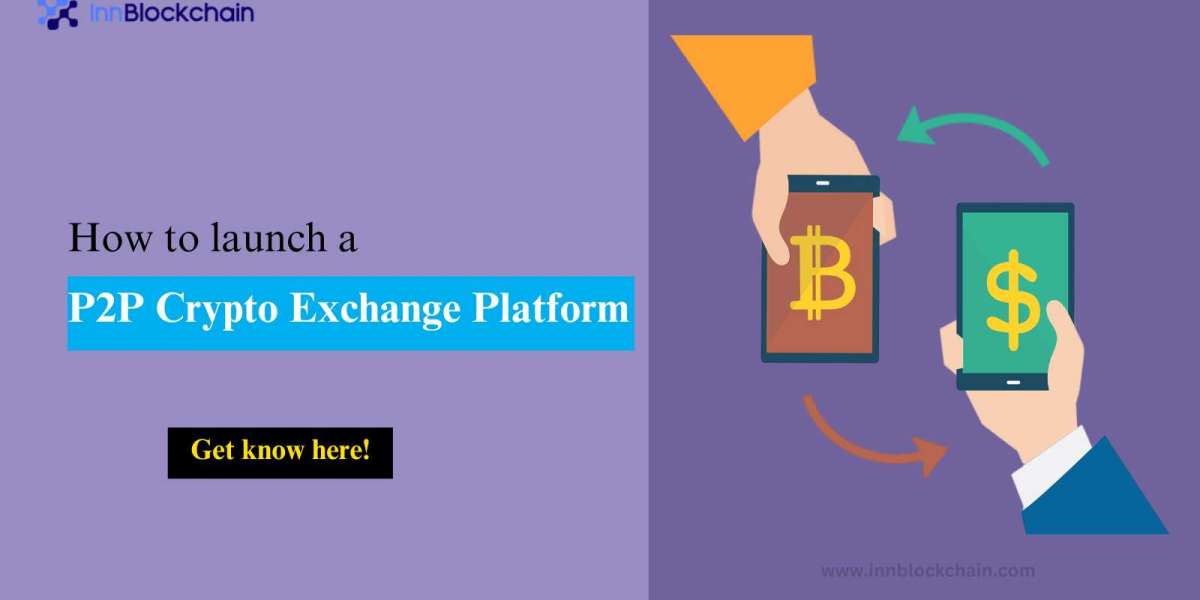With the rising demand for decentralized financial alternatives, Peer-to-Peer (P2P) crypto exchanges are increasingly becoming a mainstream business model. In contrast to centralized exchanges (CEXs), P2P platforms directly link buyers and sellers and enable them to exchange crypto assets without using intermediaries. The model offers better privacy, less costly fees, and easier accessibility—most importantly in areas where there is limited access to conventional banking.
If you are considering hosting your own P2P crypto exchange, there are some important components, technologies, and regulatory requirements you should be familiar with prior to starting out. Partnering with a reliable P2P Crypto Exchange Development Company can simplify the process by providing technical expertise, compliance guidance, and end-to-end platform development. Here's a rundown of what's involved.
1. Market Research and Business Strategy
- It's essential to research your target market before writing one line of code:
- What geographic areas are under-served by current exchanges?
- What fiat currencies and coins will you accept?
- Who are your competitors, and what’s your unique selling point (USP)?
- Your business model should also outline:
- Revenue streams (e.g., trading fees, ads, premium features)
- KYC/AML policies
- Customer support infrastructure
- Long-term scalability
2. Core Features You’ll Need
A successful P2P exchange requires a strong set of features. At a minimum, your platform should include:
User Authentication & Verification
Multi-level user verification, KYC integration, and 2FA to ensure secure onboarding.
Escrow System
Smart contracts or human escrow systems that store crypto throughout transactions, limiting fraud exposure.
Order Book and Matching Engine
Permit users to submit buy/sell offers and facilitate manual or automatic matching on price, volume, and location.
Chat Functionality
In-app chat allows buyers and sellers to negotiate terms safely without ever leaving the platform.
Payment Gateway Support
Support several fiat payment modes (bank transfer, PayPal, mobile money) depending on your target market.
Responsive UI/UX
A neat, user-friendly, and mobile-responsive interface is essential to establishing trust and facilitating seamless trades.
3. Technology Stack
The backend of a P2P crypto exchange should be secure, scalable, and lightning-fast. Here's a standard tech stack:
- Frontend: React.js, Vue.js (for responsive UI)
- Backend: Node.js, Python, or Go (for performance and API integration)
- Database: PostgreSQL, MongoDB (for transaction and user data)
- Blockchain Layer: Integration with wallets and nodes for Bitcoin, Ethereum, and others
- Security: SSL, AES encryption, rate limiting, and DDoS protection
4. Security is Non-Negotiable
Security is the foundation of any crypto platform. Important practices are:
- Cold and hot wallet management
- Anti-fraud detection systems
- Regular security audits
- GDPR-compliant data storage
- Role-based access control for admins
Escrow mechanisms and smart contracts have to be thoroughly audited to avoid abuse.
5. Compliance and Licensing
- P2P exchanges can be a legal gray area in most jurisdictions. It's crucial to:
- Register your business in a crypto-friendly jurisdiction
- Adhere to KYC/AML regulations
- Learn about local laws involving fiat-to-crypto transactions
Take advice from a lawyer who is knowledgeable about crypto laws to prevent expensive blunders down the line.
6. Selecting the Right Development Partner
If you do not possess an in-house team of blockchain developers, collaborating with a P2P crypto exchange development firm is usually the quickest and most secure way.
After your search, consider firms that provide:
- White-label exchange platforms
- Development of custom features
- Post-launch support and security patches
- Smart contract deployment and multi-chain integration experience
Final Thoughts
Starting a P2P crypto exchange is a challenging but very lucrative endeavor. With proper planning, technical setup, and compliance framework, you can establish a platform that not only empowers the user but also succeeds in the dynamic crypto economy.
Collaborating with a seasoned P2P cryptocurrency exchange development company firm can significantly accelerate your go-to-market timeline, minimize technical risk, and allow you to roll out a secure, scalable product that complies with international standards. If you're developing a niche exchange for a local market or an international trading platform, the right development partner can be the key to success.



